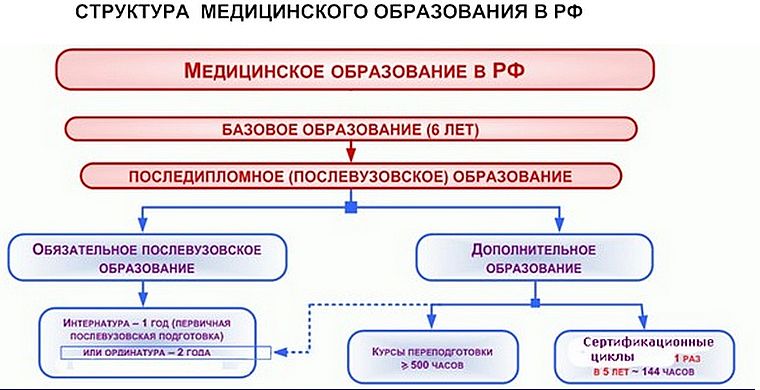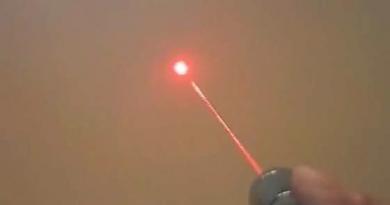Dentist is a profession that will be running at all times. However, the lack of good specialists in this area has been noticed not only in Russia, but also abroad. Dentists tend to have consistent career progression and salaries. Many prefer to work on a flexible schedule, but it is worth considering that this work must be done responsibly and in good faith. It is an attentive and caring doctor who often proves himself to be the best in the eyes of the patient.
A person who has received a diploma and completed a residency cannot be called a good dentist if he does not develop further. To replenish knowledge and skills, any specialist must take additional courses and master newer methods of work.
Before mastering such an important profession, it is important to know where and how much to study as a dentist.
Types of educational institutions and the best places to study
The table shows the types of educational institutions offering dental education, as well as places that have proven themselves from the best side in Moscow. In a particular educational institution, the requirements for admission and the conditions of study may be supplemented, the table shows the general criteria for the examples given.
| Type of institution/examples/how many years to study/specialties | Documentation | What subjects need to be taken, how much does it cost to study |
|---|---|---|
| university Peoples' Friendship University of Russia (study 5 years). Training in the following specialties:
|
Standard set of documents, certificate based on grade 11. | To enter this educational institution at the Faculty of Dentistry, you must pass the following exams:
Full-time form of education. The price of the academic year is from 400 thousand rubles. |
| university Russian National Research Medical University named after N.I. Pirogov (5 years old). Training in several specialties:
|
A standard package of documents, a certificate of completion of 11 classes or a diploma of first higher education. | What exams do you need to take?
Full-time training. The price for a year of study is from 400 thousand rubles. Passing score - 262 |
| university First Moscow State University named after I.M. Sechenov (6 years old). Specialty:
|
Standard set of documentation, diploma of completion of 11 classes. | The most popular university in Russia. It produces many different specialists, including quite rare ones. To get into this institution, you need to pass the competition and have 3 courses of study in another educational institution. Training on a full-time basis, the cost per year is from 400,000 thousand rubles. Exams:
Passing score - 320 |
Medical College No. 5 (2 years 10 months after grade 11). Dental technician training. |
Grade 11 certificate, passport, SNILS, application for admission. | Education in this dental college is full-time, the cost per year of knowledge is from 200 thousand rubles. Applicants pass entrance tests of a psychological orientation. |
| Dental College (medical-technical). Medical College of the Russian University of Transport (MIIT, 2 years 10 months after grade 11). Dental technician training. |
Grade 11 certificate, passport, SNILS, application for admission | Education is carried out on the basis of 11 classes, full-time. The price of the academic year is from 200 thousand rubles. Exams: an interview on the topic of biology. |
| Courses Institute of Continuous Education of Medical Workers "Modern Educational Technologies" (1 month). Increasing the level of classification in the following professions:
|
Diploma of education, passport, SNILS, certificate of employment. | Courses are held with a full set of groups for 1 month, increasing the class of knowledge of specialists. The price for training is 11,000 rubles. |
Now it becomes clear what is needed to study as a dentist, what subjects you need to know and pass on the exam.
In St. Petersburg, the best places to study are the First St. Petersburg State Medical University named after Academician I.P. Pavlov (about 300,000 rubles a year, passing score 135), St. Petersburg Medical and Social Institute (from 200,000 rubles a year, passing score 120), as well as medical college No. 3.
Career, place of employment
It is worth understanding that a newly-minted specialist may not be taken to decent clinics, providing a place in a state institution with a small salary. But, still, this is an advantage, as the dentist has set working hours and can gain good experience and have regular customers who will gladly visit him.
Some, after completing their studies and undergoing residency training, gain initial experience in public hospitals and determine their future place of work.
The best solution for a young doctor with connections would be to carry out his activities in commercial institutions that specialize more narrowly or, conversely, in different directions. This method of employment is possible if there is a document confirming the completion of one of the listed places of study. Paid clinics are able to give a young specialist a more powerful practice and high qualification experience.
Some choose a managerial position, which is also possible after graduating from one of the institutions. Many remain in the place where they were trained in order to develop in theoretical and applied developments.
Activities, specializations
A dentist is a generalized name for doctors who are somehow connected with this field of activity. Ordinary patients are treated by a dentist-therapist, more serious problems are solved by specialists of a narrow focus. Specialties in dentistry:
- accepts patients with carious cavities, treats the channels of dental tissue, restores dental defects using filling materials.
- provides treatment in the event of any inflammatory process of the oral cavity.
- acts on untreated dental tissues, removing them. Carries out surgical interventions, if the installation of artificial teeth is required, or in case of diseases of the oral cavity that require surgical intervention.
- The orthopedist helps the patient choose the right prosthetic areas for the oral cavity.
- An orthodontist deals with the treatment of occlusion of teeth.
- A pediatric dentist treats only minor patients, having a broader knowledge of the pediatric jaw.
- — is engaged in the prevention and treatment of diseases of the oral cavity, as well as the protection of the health of patients in general.
- A generalist dentist is engaged in various activities that are performed by doctors of a narrower focus. Such a doctor can treat the patient without resorting to anyone's help.
When thinking about these professions, young people take into account how much a dentist earns. The salary of these specialists in the center of Russia is 37,000-200,000 thousand rubles, and everywhere 25,000-120,000 thousand rubles.
Some want to know what is the difference between a dentist and a dentist. Today, at least in Russia, there is no difference, it was in the past centuries.
What qualities do you need to have
It is difficult to study for any doctor, because we are talking about human health. The choice of this profession assumes that the student can responsibly approach the task, perform it with the utmost care, using his hands and mental abilities. Each specialist must have highly developed fine motor skills of hands, be kind and attentive to the patient. Also strive for more, constantly developing and studying new technologies.
It is important to understand what a dentist should be like.
Anyone who has chosen this direction of his life must have deep knowledge of the structure of the human body, its physiological properties, be sure to understand the structure of the oral cavity and be able to explain this in simple words to the patient. The dentist must have an excellent understanding of medicines, x-rays, and be able to use dental instruments.
Positive and negative aspects of the profession
After receiving a diploma, not many people say that they like this job. Therefore, before studying to be a dentist, it is important to familiarize yourself with the various aspects of this specialty.
- the relevance of the profession at all times;
- higher financial independence;
- the possibility of obtaining their own workplace;
- development of a permanent client base;
- virtually no mortality among patients;
- good working conditions;
- it takes a long time to train as a doctor and acquire skills;
- there are competitors (the results of statistics show the emergence of a large flow of specialists in this field);
- there is a risk of a call during off-hours;
- for some, the disadvantage is the high level of responsibility for the health of patients.
In addition, thinking about your abilities and desires will help you understand whether it is worth studying to be a dentist. You have to love your job, that's the key to success.
How to become a dentist: stages of becoming a specialist

All doctors study long enough. Training to become a dentist can take several years, namely from 4 to 22 years. First, a student enters a lower educational institution, graduating from it, goes to an institute that is already training specialists. This stage lasts approximately 5 years. Further, the student is required to complete residency, then postgraduate study, which is replaced by doctoral studies at the request of the student.
The residency itself lasts 3 years, after which the graduate decides whether to go to work or continue his studies. Residency is an integral part of the educational process of a higher educational institution, where an in-depth development of a doctor takes place.
Those who want to study dentistry by correspondence may be disappointed to learn that such an option does not exist, since performing manipulations in the classroom requires the full presence of the student.
Distance learning for any doctor, regardless of specialization, is impossible.



